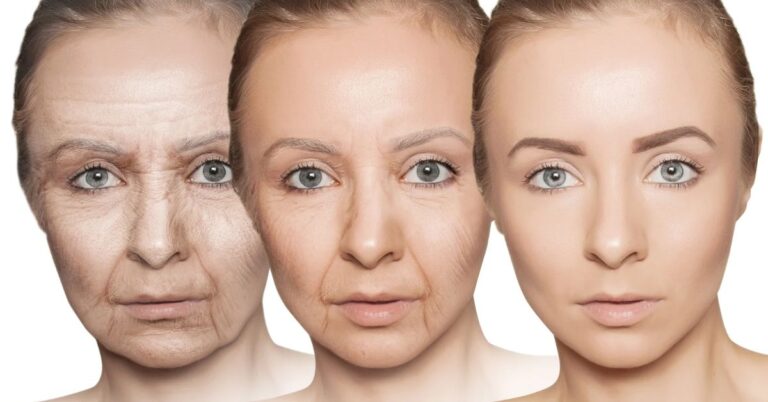Are You Aging Too Fast? 9 Early Signs of Accelerated Aging You Shouldn’t Ignore
Aging is a natural part of life, but accelerated aging can catch you off guard. While chronological age is measured in years, biological age indicates how well your body functions at a cellular level.
Yes, it’s biologically possible to be 60 at 40. New research reveals that chronic stress, poor sleep, nutrient deficiencies, and inflammation can accelerate aging at the cellular level, resulting in premature wrinkles, memory lapses, fatigue, and an increased risk of disease.
The good news is that many of these signs are reversible with lifestyle changes. Here are nine early signs of accelerated aging that you shouldn’t ignore, along with expert-backed strategies to help slow down the process.
Expert Insight: “Biological Age Can Be Changed”
Dr. Kara Fitzgerald, ND, a functional medicine expert and author of Younger You, emphasizes that aging is not merely about time but also about the accumulation of damage.
According to Dr. Fitzgerald, we now possess tools to measure and even reverse biological age through simple, science-based lifestyle changes.
Dr. David Sinclair, a longevity researcher at Harvard Medical School, agrees that identifying signs of accelerated aging earlier gives you more power to reverse them.
Study Findings: What the Science Says About Aging Faster Than Normal
A 2023 study published in Nature Aging revealed that individuals who experience poor sleep, elevated stress levels, and compromised metabolic health exhibit signs of accelerated epigenetic aging. This phenomenon suggests that their biological age is significantly higher than their actual age.
Another study published in The Journals of Gerontology revealed a correlation between shorter telomeres, a marker of biological aging, and various factors, including smoking, chronic inflammation, and a sedentary lifestyle.
Read more on telomere health from the NIH
9 Early Signs of Accelerated Aging to Watch For
1. Persistent Fatigue
If you feel tired even after a full night’s sleep, it could indicate mitochondrial dysfunction or low cellular energy production both hallmarks of accelerated aging.
2. Brain Fog or Memory Issues
Cognitive decline can start earlier than you think. Chronic inflammation and poor sleep can impair neuroplasticity and accelerate brain aging.
3. Dry, Wrinkled, or Sagging Skin
Skin is often the first place we notice aging. Collagen loss, oxidative stress, and sun damage can make your skin age faster than the rest of your body.
Healthline: Signs of Skin Aging
4. Slow Wound Healing
If minor cuts or bruises take longer to heal, it may signal reduced immune function and impaired cellular regeneration two signs of premature aging.
5. Brittle Nails or Thinning Hair
Changes in hair texture or nail strength could reflect nutrient deficiencies, hormonal imbalances, or metabolic stress.
6. Weight Gain, Especially Around the Belly
Visceral fat is strongly linked to inflammation and metabolic aging, which can speed up the aging process internally even if you’re active.
7. Frequent Aches, Stiffness, or Joint Pain
Chronic inflammation—also known as “inflammaging”—can affect muscles and joints, leading to early-onset pain or stiffness.
8. Decreased Libido or Hormonal Changes
Sudden shifts in hormone levels, especially testosterone, estrogen, or DHEA, may indicate endocrine aging or adrenal fatigue.
9. Poor Sleep Quality
Trouble falling or staying asleep, or waking up unrefreshed, disrupts circadian rhythm and accelerates aging by impairing cellular repair.
Public Health Impact: Aging Faster Isn’t Just Cosmetic
Accelerated aging isn’t just about how you look it’s about how your body functions. From heart disease and diabetes to cognitive decline, faster biological aging is associated with higher risk of chronic illness, even in people under 50.
According to the CDC, up to 80% of older adults have at least one chronic condition. Many of these begin developing years even decadesnbefore symptoms show up.
Actionable Lifestyle Tips to Reverse or Slow Accelerated Aging
If you’re noticing some of these signs, don’t panic. Many are reversible with science-backed changes:
Prioritize sleep – Aim for 7–9 hours of consistent, high-quality sleep
Exercise regularly – Include strength training, walking, and mobility work
Manage stress – Practice mindfulness, deep breathing, or journaling daily
Eat an anti-inflammatory diet – Think whole foods, omega-3s, and antioxidants
Supplement smartly – Consider magnesium, vitamin D, omega-3s, or NMN after consulting your doctor
Get regular checkups – Monitor key markers like blood sugar, inflammation, and hormone levels
Limit alcohol and sugar – Both are linked to faster telomere shortening
Know the Signs, Take Control
Aging faster than normal isn’t a death sentence, but it serves as a wake-up call. By identifying the early signs of accelerated aging, you gain a crucial opportunity to take control of your health trajectory before chronic illnesses develop.
As Dr. Fitzgerald rightly points out, “While you can’t alter your birthdate, you can influence your biological age. And in most cases, it’s never too late to start.”
Check out the healthlynic ✔️approved range of products for Weight Loss, Improve metabolism and much more!







